
Find Help
More Items From Ergsy search
-

What support is available for families of individuals with PIMD?
Relevance: 100%
-

Profound intellectual and multiple disabilities | NHS
Relevance: 44%
-

Can live-in care support individuals with dementia?
Relevance: 35%
-

Mental Health Support Resources for Families
Relevance: 34%
-

What support is available for individuals diagnosed with bowel cancer?
Relevance: 33%
-

How can families support a member with autism?
Relevance: 33%
-

Mental Health Support for Families: Resources and Helplines
Relevance: 32%
-

Mental Health Support for Families: Resources and Strategies
Relevance: 32%
-

Mental Health Support for Families: Resources and Guidance
Relevance: 31%
-
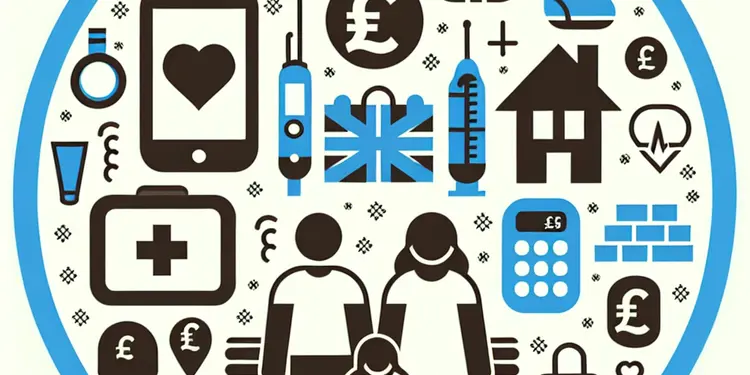
What support is available for families dealing with type 1 diabetes?
Relevance: 31%
-

Government Support Schemes for Families Affected by Inflation
Relevance: 30%
-

Mental Health Support for Families - Latest Resources and Guidance
Relevance: 30%
-

Government Announces New Support Scheme for Low-Income Families
Relevance: 30%
-
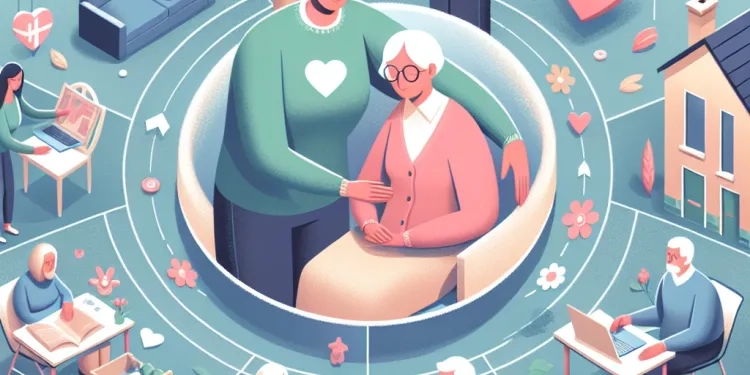
How can families support a loved one with Alzheimer's?
Relevance: 29%
-

Financial Support for Families Amid Rising Cost of Living
Relevance: 28%
-

Are there support groups for individuals with motor neurone disease?
Relevance: 28%
-

How can family members support someone with postnatal depression?
Relevance: 28%
-

Understanding Your Rights: Legal Support for Families During Economic Turbulence
Relevance: 27%
-
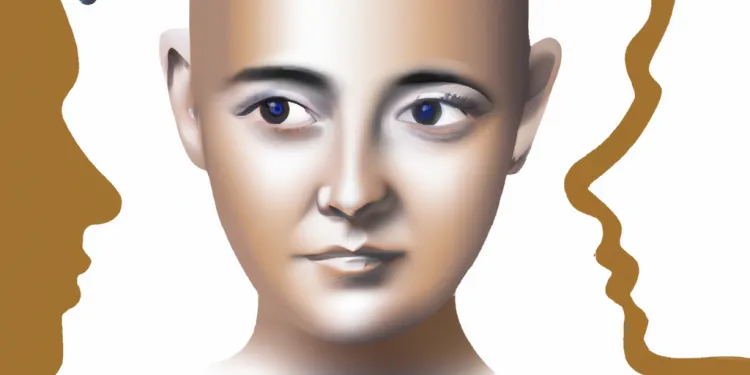
Mental Health Resources for Families
Relevance: 25%
-

How can family and friends support someone with health-related anxiety?
Relevance: 25%
-
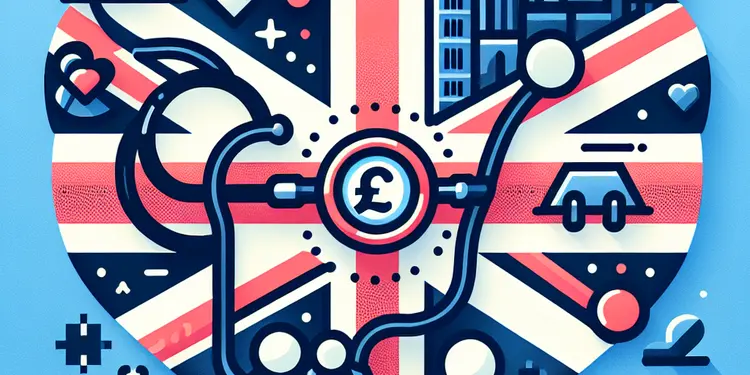
What support is available for families affected by Huntington's disease?
Relevance: 25%
-

Are there grants specifically for individuals with disabilities?
Relevance: 24%
-

The Benefits of Family Activities
Relevance: 24%
-

Advancements in Mental Health Resources for Families
Relevance: 23%
-
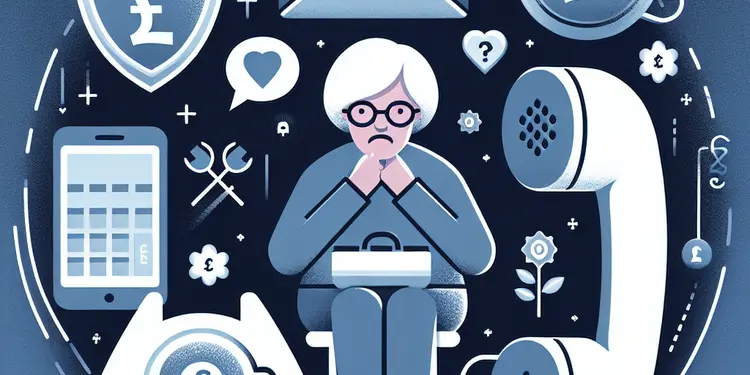
Why are elder individuals often targeted by scammers?
Relevance: 23%
-
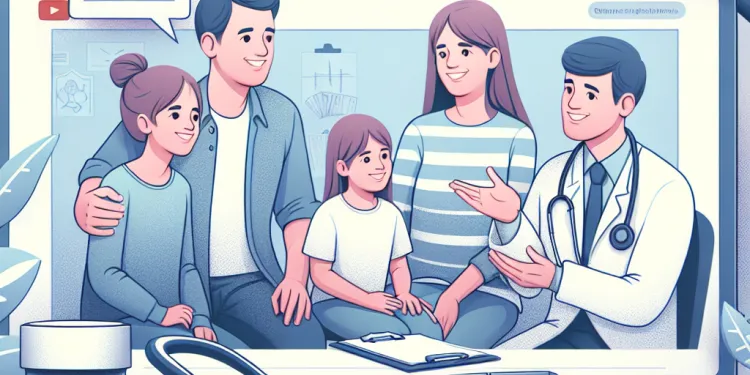
Managing Chronic Illness Within the Family
Relevance: 23%
-

The Family Court without a Lawyer - Video 2 of 3
Relevance: 23%
-

Can therapy help individuals with ADHD?
Relevance: 23%
-

What are the changes to Family Court Law in 2026?
Relevance: 22%
-

Are there modifications to legal aid access in family court for 2026?
Relevance: 22%
-

What role do family and friends play in the recovery process?
Relevance: 22%
-

The Family Court without a Lawyer
Relevance: 22%
-
Where can individuals find support for mitochondrial disease?
Relevance: 22%
-

The Family Court without a Lawyer - Video 1 of 3
Relevance: 22%
-

Impact of Rising Living Costs on Family Health
Relevance: 22%
-

The Family Court without a Lawyer - Video 3 of 3
Relevance: 21%
-

New Government Benefits for Low-Income Families
Relevance: 21%
-

How Rising Living Costs Are Impacting Family Wellbeing
Relevance: 21%
-

Who is eligible for Household & Cost-of-Living Support grants?
Relevance: 21%
-

What support is available for people with stoma bags?
Relevance: 21%
Support Available for Families of Individuals with Profound Intellectual and Multiple Disabilities (PIMD) in the UK
Governmental and Local Authority Support
In the UK, families of individuals with profound intellectual and multiple disabilities (PIMD) can access a variety of support services provided by the government and local authorities. These services include financial support through benefits like the Disability Living Allowance (DLA), Personal Independence Payment (PIP), and Carer's Allowance, designed to assist with the additional costs associated with disability. Local councils may also offer support through social care services, providing needs assessments that could lead to direct support such as personal care assistance or adaptations to the home to facilitate accessibility.
Healthcare Services and Specialist Consultations
The National Health Service (NHS) offers a range of healthcare services crucial for the well-being of individuals with PIMD. Families can benefit from consultations with specialists who understand complex needs, including pediatricians, neurologists, and physiotherapists. Community health teams often include professionals such as speech and language therapists, occupational therapists, and dieticians, who offer tailored interventions aimed at improving quality of life. Access to these services helps manage health conditions effectively and provides ongoing support for families.
Educational Support and Respite Care
Education and respite care are also vital components of support for families. Special needs schools cater to children with PIMD, offering individualized education plans and environments designed to maximize learning and development. In addition, respite care provides families and carers with short-term relief from caregiving duties. This can include overnight stays, day care centers, or hiring in-home carers, allowing families to rest knowing their loved ones are in a safe environment.
Non-Governmental Organizations and Community Groups
Numerous charities and community groups across the UK offer support, advocacy, and resources for families of individuals with PIMD. Organizations such as Mencap and the Challenging Behaviour Foundation provide information, helplines, and support groups, enabling families to connect with others in similar situations and access valuable peer support. Many of these groups focus on raising awareness, lobbying for services, and providing tools and workshops for family members to better navigate the challenges they face.
Support Available for Families of Individuals with Profound and Multiple Learning Disabilities (PIMD) in the UK
Understanding PIMD
Individuals with Profound and Multiple Learning Disabilities (PIMD) experience severe impairments and require extensive support in daily life. This impacts not only the individuals themselves but also their families, who often serve as primary caregivers. In the UK, a variety of services and resources exist to aid families in providing the best care possible.Government and Local Authority Support
The UK government and local authorities offer vital support through various programs. Families can access financial assistance such as Disability Living Allowance (DLA) for children under 16 and Personal Independence Payment (PIP) for those 16 and over, helping cover additional costs associated with disabilities. Moreover, councils provide social care services, offering respite care, assistance from social workers, and tailored support plans for individuals with PIMD.Healthcare Services
The National Health Service (NHS) provides comprehensive healthcare services for individuals with PIMD. These services include specialist clinics, speech and language therapy, occupational therapy, and physiotherapy, ensuring medical needs are addressed. Families should connect with local GP surgeries to understand available services and coordinate care for their loved ones.Charitable Organizations and Educational Support
Numerous charities in the UK, such as Mencap and Sense, offer support to families, providing resources, advocacy, and advice. These organizations can help navigate the care system and connect families to local support networks. Additionally, special schools and units cater to children with PIMD, focusing on tailored education plans to meet individual needs.Emotional and Peer Support
Families may benefit from connecting with others in similar situations. Support groups, often facilitated by charities or local community centers, offer a space to share experiences and advice. Online forums and social media groups also provide accessible platforms for interaction and emotional support.Conclusion
For families of individuals with PIMD in the UK, a range of support options exist to ease caregiving responsibilities. By understanding and accessing available resources from government bodies, healthcare services, charities, and peer networks, families can better manage daily challenges and ensure a higher quality of life for their loved ones.Help for Families of People with Profound Disabilities in the UK
Help from the Government and Local Councils
In the UK, families of people with profound intellectual and multiple disabilities (PIMD) can get help. The government and local councils provide different services. They can give families money to help with extra costs. This includes benefits like Disability Living Allowance (DLA), Personal Independence Payment (PIP), and Carer's Allowance. Local councils can also help with social care. They might do an assessment to see what help you need. This can include personal care assistance or making changes to your home so it is easier to get around.
Healthcare Services and Specialist Help
The National Health Service (NHS) provides important healthcare services. Families can see doctors who know how to help people with complex needs. These doctors include pediatricians, neurologists, and physiotherapists. Community health teams have therapists and dieticians who help improve quality of life. This makes health conditions easier to manage and supports families.
Education and Respite Care
Education and respite care are very important for families. Special schools help children with PIMD learn and grow. Respite care gives families a break from taking care of their loved ones. This can include overnight stays, day care centers, or carers who come to your home. Families can rest knowing their loved ones are safe and cared for.
Charities and Community Groups
There are many charities and community groups in the UK that help families of people with PIMD. Groups like Mencap and the Challenging Behaviour Foundation offer information and support. They have helplines and support groups where families can talk to others in similar situations. These groups help raise awareness and provide workshops and tools to help families manage challenges better.
Help for Families of People with PIMD in the UK
What is PIMD?
People with Profound and Multiple Learning Disabilities (PIMD) find it hard to do many things and need a lot of help every day. This affects them and their families, who often take care of them. In the UK, there are many services to help families give the best care.Help from the Government and Local Councils
The UK government and local councils give important help through different programs. Families can get money help, like the Disability Living Allowance (DLA) for children under 16 and the Personal Independence Payment (PIP) for people 16 and older. This money helps with extra costs of having disabilities. Councils also give social care services, like short breaks for caregivers, help from social workers, and special support plans.Healthcare Services
The National Health Service (NHS) gives healthcare services for people with PIMD. This includes special clinics, speech and language therapy, occupational therapy, and physiotherapy. Families should talk to their local doctors to learn about these services and make plans for their loved ones' care.Charity Support and Education Help
Many charities in the UK, like Mencap and Sense, help families with resources, advice, and support. These charities help families understand the care system and meet other families. There are also special schools for children with PIMD, which offer education plans that meet their special needs.Emotional Support and Friends
Families can feel better by meeting other families in the same situation. Support groups, often run by charities or community centers, let families share stories and advice. Online forums and social media groups are also places where families can talk and get support.Conclusion
For families of people with PIMD in the UK, there are many help options to make caregiving easier. By learning about and using resources from the government, healthcare services, charities, and support networks, families can handle daily challenges better and improve the quality of life for their loved ones.Frequently Asked Questions
What is PIMD?
PIMD stands for Profound Intellectual and Multiple Disabilities. It refers to individuals with profound and multiple learning disabilities, often including complex health needs.
What kinds of financial support are available for families of individuals with PIMD?
Families may be eligible for benefits such as Disability Living Allowance (DLA) for children, Personal Independence Payment (PIP) for adults, and Carer's Allowance for those providing care.
Are there specific educational programs for children with PIMD?
Yes, in the UK, individuals with PIMD are often eligible to attend special schools that offer tailored educational programs to meet their needs.
Can families receive respite care for children with PIMD?
Yes, respite care services are available and can provide temporary relief for families. These services can be accessed through local councils or specialized care providers.
What local services are available to support families of individuals with PIMD?
Local councils offer social services and support, including short breaks, social care assessments, and one-on-one support through social workers.
Is there government support for accessibility modifications at home?
Families can apply for the Disabled Facilities Grant, which provides financial aid for home adaptations to improve accessibility for a person with PIMD.
Are there charity organizations that support families with PIMD?
Yes, organizations like Mencap, Scope, and the National Autistic Society offer support, advice, and resources for families of individuals with PIMD.
Where can families find support groups?
Families can find support through local council directories, online forums, and national organizations that host support groups and events.
Are there specific healthcare services for individuals with PIMD?
The NHS provides specialist clinics, community health services, and multidisciplinary teams to address the complex health needs of individuals with PIMD.
How can families access therapy services for individuals with PIMD?
Families can access physiotherapy, occupational therapy, and speech and language therapy through referrals from their GP or specialist.
What role do educational healthcare plans (EHCPs) play for children with PIMD?
EHCPs outline the educational, health, and social care support a child with PIMD needs, and these plans are regularly reviewed to ensure they meet the child's requirements.
Can families receive training on how to care for an individual with PIMD?
Yes, local councils and organizations offer training programs for families to better understand and care for individuals with PIMD.
Are there advocacy organizations for individuals with PIMD?
Organizations like Mencap advocate for the rights and needs of individuals with PIMD, providing information and support to families.
Can families of individuals with PIMD receive support regarding employment and benefits?
Families can receive guidance on employment rights, benefits eligibility, and working while caring through services like Citizen's Advice Bureau and local council resources.
Are there legal resources available for families seeking support for special educational needs?
Yes, families can access legal support through organizations such as IPSEA, which offers free and independent legal advice on special educational needs.
What is PIMD?
PIMD stands for Profound Intellectual and Multiple Disabilities. It means a person has lots of care needs. They find it hard to learn, move, and talk.
Some tools can help:
- Picture cards: These can help people express their needs.
- Communication devices: Special machines can help with talking.
- Supportive therapies: Sessions like physiotherapy can help with movement.
PIMD means Profound Intellectual and Multiple Disabilities. This is for people who have very big learning disabilities. They might also have many health problems.
What money help can families get if they have someone with PIMD?
Families can get help, like money for different needs. Kids might get Disability Living Allowance (DLA). Grown-ups might get Personal Independence Payment (PIP). If you take care of someone, you might get Carer's Allowance.
You can use tools like:
- Big buttons on devices for easy use.
- Talk-to-type apps if writing is hard.
- Pictures to help understand words better.
Are there special school programs for kids with PIMD?
PIMD stands for Profound and Multiple Learning Disabilities.
Here’s how we can help:
- Find schools that know how to help kids with PIMD.
- Use picture cards and clear signs to help them learn.
- Work slowly and take small steps.
- Use special tools like communication boards or devices.
Always ask teachers and helpers for advice to make learning fun and easy.
Yes, in the UK, people with PIMD can go to special schools. These schools have programs made just for them to help with learning.
Can families get a break when caring for children with PIMD?
Families taking care of kids with PIMD can sometimes get help. This help is called respite care. It gives families a break so they can rest. Special caregivers look after the child for a little while.
If you need respite care, you can:
- Ask a doctor or nurse for ideas.
- Look for local support groups.
- Use online tools to find resources.
Remember, you are not alone. There are people who can help you.
Yes, there are services called respite care that can help families take a break. You can find these services through your local council or special care providers.
What local help can families of people with PIMD get?
If someone in your family has PIMD (this means Profound Intellectual and Multiple Disabilities), there are services that can help you. Here’s how you can find support:
- Look for local groups that can offer advice and support.
- Ask your community center or local council for information.
- Check if there are any special classes or clubs nearby.
- Use the internet to search for help in your area.
- Talk to your doctor for more advice.
Some tools that might help you:
- Apps for learning and communication.
- Visual aids like pictures and charts.
- Programs that teach skills step by step.
Remember, there are many people who care and want to help you and your family.
Local councils can help you in your community. They give support like:
- Short breaks for families. - Checking what help you need. - One-on-one help from social workers.
Can the government help pay for changes to make homes easier to use?
If you need to make your home easier to live in, like adding ramps or handrails, the government might help. Check with local services to see what help is there.
You can also ask friends, family, or support workers for help in finding the right information.
Families can ask for money help called the Disabled Facilities Grant. This money helps make changes in the home so it is easier for someone with PIMD to live there.
Do charities help families with PIMD?
Yes, there are charities that help families who have someone with PIMD.
PIMD means Profound and Multiple Learning Disabilities.
Here are some ways these charities help:
- Giving advice and information.
- Offering support groups to talk to other families.
- Providing fun activities for families to do together.
If you need help, try looking for local charities or asking a doctor or teacher for ideas.
Yes, groups like Mencap, Scope, and the National Autistic Society can help families. They give support, advice, and things to help people with PIMD.
Where can families find help groups?
Families can find help groups in their area. Here are some ways to find them:
- Ask a doctor or nurse for ideas.
- Visit the library and ask for information.
- Look for help groups online. Use a computer or phone.
- Ask friends if they know any help groups.
Families can also use these tools:
- Computer or tablet to search the internet.
- Phone to call places for information.
Families can get help in different ways. They can look at local council lists, join online chats, or talk to big national groups. These places have support groups and fun events for families.
Are there special doctors and helpers for people with PIMD?
PIMD means having very big and complex difficulties in the body and mind.
People with PIMD need extra care from doctors and helpers who know how to help.
They might need to visit special clinics or use special equipment.
It's nice to have a friend or family member help during visits.
Pictures and apps on tablets can also make things easier to understand.
The NHS has special clinics, community health services, and teams of different health experts to help people with very complex health needs.
How can families get therapy help for people with PIMD?
Families can find therapy services to help people with PIMD. PIMD means Profound Intellectual and Multiple Disabilities. Follow these steps:
1. Talk to a Doctor: Ask the family doctor about therapy options. They can give advice and referrals.
2. Contact Local Services: Reach out to local health services. They often have information about available therapies.
3. Look for Support Groups: Join support groups for families with PIMD. They can offer helpful advice and share experiences.
4. Use Online Resources: Check websites with information about PIMD. They can guide you to therapy services.
These steps can help families find the right support for their loved ones with PIMD. Using pictures, apps, or videos can also help when learning about therapy options.
Families can get help with moving, daily activities, and talking by asking their doctor or a specialist to recommend them.
Here are some ways to make reading easier:
- Ask someone to read with you.
- Use a ruler or finger to guide you through the sentences.
- Listen to the text using text-to-speech tools if possible.
- Take breaks to rest your eyes and brain.
How do educational healthcare plans (EHCPs) help children with PIMD?
Educational healthcare plans, called EHCPs, are important for children with PIMD. PIMD means Profound and Multiple Learning Disabilities.
EHCPs are like a special plan for each child. They tell us what each child needs to learn and grow.
Here is how EHCPs help:
- Personal support: The plan shows what help a child needs at school.
- Goals: It sets goals for the child to reach, like learning new skills.
- Teamwork: Everyone, like teachers and doctors, works together to help the child.
If you need help, you can ask a teacher, friend, or family member. There are also apps that read out loud, like screen readers.
EHCPs are plans that say what help a child with PIMD needs for learning, health, and getting along with others. These plans get checked often to make sure they are still good for the child.
Can families learn how to help someone with PIMD at home?
Families can learn how to take care of someone with PIMD (profound intellectual and multiple disabilities). There are classes and support groups that can help.
Here are some tools and tips that might help:
- Join a support group to talk to other families.
- Attend workshops or classes for training.
- Read books or watch videos about caring for someone with PIMD.
- Ask doctors or nurses for advice and support.
Yes, local councils and groups have training programs. These help families learn how to understand and care for people with PIMD.
Are there groups that help people with PIMD?
PIMD means Profound Intellectual and Multiple Disabilities. These are people who need extra help. Some groups work to help and support them. These groups speak up for their rights and needs.
Here are some things that can help:
- Support Groups: Join groups that talk and help families and friends.
- Communication Tools: Use simple signs or pictures to talk.
- Activities: Do things that everyone can enjoy, like music or art.
- Professional Help: Ask doctors or teachers for advice and support.
There are groups like Mencap. They help people with very big learning needs. They also help families by giving them information and support.
Can families of people with PIMD get help with jobs and money?
Families of people with PIMD might need help with getting a job or money support. There are places and people who can help you:
- Job Centers: They can help find jobs and offer advice.
- Support Groups: Some groups can share experiences and give tips.
- Government Programs: There might be special programs for money support.
- Charities: Some charities can offer help and advice.
If you want help, you can call these places, check their websites, or visit them in person.
Families can get help to understand job rights, find out what benefits they can get, and learn how to work while caring for someone. They can use services like Citizen’s Advice Bureau and local council resources.
Can families get legal help for special educational needs?
Yes, families can get help.
There are people who know the law and can help families with special educational needs.
Here are some ways families can find help:
- Talk to a lawyer: Lawyers know about the law and can give advice.
- Find local support groups: These groups help families and share useful information.
- Use online resources: There are websites with tips and guides.
- Contact charities: Some charities offer free advice and support.
Yes, families can get help with the law from groups like IPSEA. IPSEA gives free advice about special learning needs.
Useful Links
This website offers general information and is not a substitute for professional advice.
Always seek guidance from qualified professionals.
If you have any medical concerns or need urgent help, contact a healthcare professional or emergency services immediately.
Some of this content was generated with AI assistance. We’ve done our best to keep it accurate, helpful, and human-friendly.
- Ergsy carfully checks the information in the videos we provide here.
- Videos shown by Youtube after a video has completed, have NOT been reviewed by ERGSY.
- To view, click the arrow in centre of video.
- Most of the videos you find here will have subtitles and/or closed captions available.
- You may need to turn these on, and choose your preferred language.
- Go to the video you'd like to watch.
- If closed captions (CC) are available, settings will be visible on the bottom right of the video player.
- To turn on Captions, click settings .
- To turn off Captions, click settings again.
More Items From Ergsy search
-

What support is available for families of individuals with PIMD?
Relevance: 100%
-

Profound intellectual and multiple disabilities | NHS
Relevance: 44%
-

Can live-in care support individuals with dementia?
Relevance: 35%
-

Mental Health Support Resources for Families
Relevance: 34%
-

What support is available for individuals diagnosed with bowel cancer?
Relevance: 33%
-

How can families support a member with autism?
Relevance: 33%
-

Mental Health Support for Families: Resources and Helplines
Relevance: 32%
-

Mental Health Support for Families: Resources and Strategies
Relevance: 32%
-

Mental Health Support for Families: Resources and Guidance
Relevance: 31%
-

What support is available for families dealing with type 1 diabetes?
Relevance: 31%
-

Government Support Schemes for Families Affected by Inflation
Relevance: 30%
-

Mental Health Support for Families - Latest Resources and Guidance
Relevance: 30%
-

Government Announces New Support Scheme for Low-Income Families
Relevance: 30%
-

How can families support a loved one with Alzheimer's?
Relevance: 29%
-

Financial Support for Families Amid Rising Cost of Living
Relevance: 28%
-

Are there support groups for individuals with motor neurone disease?
Relevance: 28%
-

How can family members support someone with postnatal depression?
Relevance: 28%
-

Understanding Your Rights: Legal Support for Families During Economic Turbulence
Relevance: 27%
-

Mental Health Resources for Families
Relevance: 25%
-

How can family and friends support someone with health-related anxiety?
Relevance: 25%
-

What support is available for families affected by Huntington's disease?
Relevance: 25%
-

Are there grants specifically for individuals with disabilities?
Relevance: 24%
-

The Benefits of Family Activities
Relevance: 24%
-

Advancements in Mental Health Resources for Families
Relevance: 23%
-

Why are elder individuals often targeted by scammers?
Relevance: 23%
-

Managing Chronic Illness Within the Family
Relevance: 23%
-

The Family Court without a Lawyer - Video 2 of 3
Relevance: 23%
-

Can therapy help individuals with ADHD?
Relevance: 23%
-

What are the changes to Family Court Law in 2026?
Relevance: 22%
-

Are there modifications to legal aid access in family court for 2026?
Relevance: 22%
-

What role do family and friends play in the recovery process?
Relevance: 22%
-

The Family Court without a Lawyer
Relevance: 22%
-
Where can individuals find support for mitochondrial disease?
Relevance: 22%
-

The Family Court without a Lawyer - Video 1 of 3
Relevance: 22%
-

Impact of Rising Living Costs on Family Health
Relevance: 22%
-

The Family Court without a Lawyer - Video 3 of 3
Relevance: 21%
-

New Government Benefits for Low-Income Families
Relevance: 21%
-

How Rising Living Costs Are Impacting Family Wellbeing
Relevance: 21%
-

Who is eligible for Household & Cost-of-Living Support grants?
Relevance: 21%
-

What support is available for people with stoma bags?
Relevance: 21%


